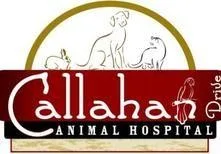
Do You Know If Your Dog Is Showing Symptoms of Anemia?
Is your normally energetic dog suddenly listless, weak, and uninterested in food? Anemia may be to blame for these troubling symptoms.
What is Anemia?
Anemia occurs due to a decrease in the number of red blood cells in your dog's blood. The cells are produced in the bone marrow, along with platelets and white blood cells.
Red blood cells contain hemoglobin, an iron-rich protein that delivers oxygen from the lungs to the entire body and returns carbon dioxide back to the lungs for removal. Your pet's cells and tissues won't receive enough oxygen if its red blood cell or hemoglobin level is too low.
What Are The Symptoms of Anemia?
These symptoms can occur if your dog has anemia:
- Pale Gums, Ears, or Eyes
- Jaundice (Yellow Eyes and Mucous Membranes)
- Lack of Energy and Stamina
- Fatigue
- Weakness
- Vomiting
- Lack of Appetite
- Weight Loss
- Fast Heart Rate or Pulse
- Bloody Vomit, Stool, or Urine
What Causes Anemia?
Anemia can occur due to insufficient production of red blood cells, bleeding, deficiencies that lead to the premature destruction of the cells, blood cell damage, or a decrease in the nutrients needed to produce red blood cells. Common causes of anemia include:
- Blood Loss. An injury isn't the only cause of blood loss. Internal bleeding may sometimes occur after surgery or might happen if your pet has parasites, ulcers, or stomach tumors. A blood-clotting disorder could also be the source of the anemia. As a result of the condition or injury, your pet experiences a loss of red blood cells.
- Kidney Disease. Anemia may be a result of kidney disease or failure in some cases. Your pet's kidneys produce a hormone that triggers the production of new red blood cells. If your dog has kidney disease, a decrease in the production of the hormone may lead to anemia.
- Inherited Enzyme Deficiencies. Your pet's red blood cells may have a shorter lifespan than normal due to one of several inherited enzyme deficiencies. English Springer Spaniels, West Highland Terriers, Beagles, Cairn Terriers, and Basenjis are more likely to develop the deficiency, according to the Merck Manual.
- Toxins. Exposure to chemicals or toxic drugs or plants can destroy red blood cells. Over-the-counter medications that are safe for humans, such as aspirin, ibuprofen, or acetaminophen, may cause anemia in pets. Prescription medications, onions, garlic, and pesticides can also affect your dog's red blood cell count.
- Nutritional Deficiencies. Your dog may develop anemia if its diet doesn't contain enough iron, vitamin E, copper, riboflavin, vitamins B12 and B6, or niacin.
- Infections and Diseases: Dogs that have cancer, autoimmune diseases, hypothyroidism, Cushing's disease, bacterial infections, and other diseases, infections, or conditions may be at increased risk of becoming anemic.
How Do Veterinarians Diagnose and Treat Anemia?
If your pet's vet suspects that your dog has anemia, he or she may order a variety of tests that can confirm the diagnosis and identify the underlying cause. In addition to blood tests, other tests that can be helpful include urine tests, ultrasound scans, X-rays, bone marrow biopsies, and fecal tests to determine if your pet has parasites.
Treatment of anemia depends on the cause. Successfully treating fleas, hookworm, and other parasitic infections can cause your pet's red blood cell to increase, while drugs that suppress the immune system may be helpful if your dog has an immune system condition. In some cases, iron supplements may offer relief of anemia symptoms. If your dog has severe anemia, blood transfusions may be needed.
Prompt veterinary treatment can help your dog recover from anemia. If your pet has been displaying any of the symptoms mentioned above, contact our office to schedule an appointment as soon as possible.
Sources:
American Kennel Club: Anemia in Dogs, 8/21/17

